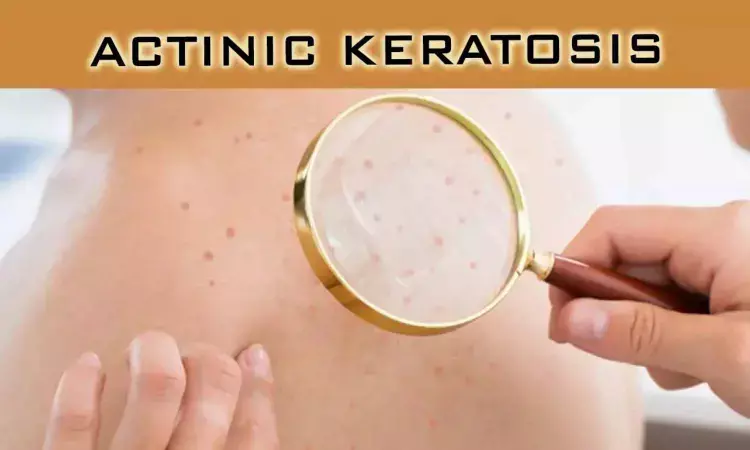- Home
- Medical news & Guidelines
- Anesthesiology
- Cardiology and CTVS
- Critical Care
- Dentistry
- Dermatology
- Diabetes and Endocrinology
- ENT
- Gastroenterology
- Medicine
- Nephrology
- Neurology
- Obstretics-Gynaecology
- Oncology
- Ophthalmology
- Orthopaedics
- Pediatrics-Neonatology
- Psychiatry
- Pulmonology
- Radiology
- Surgery
- Urology
- Laboratory Medicine
- Diet
- Nursing
- Paramedical
- Physiotherapy
- Health news
- Fact Check
- Bone Health Fact Check
- Brain Health Fact Check
- Cancer Related Fact Check
- Child Care Fact Check
- Dental and oral health fact check
- Diabetes and metabolic health fact check
- Diet and Nutrition Fact Check
- Eye and ENT Care Fact Check
- Fitness fact check
- Gut health fact check
- Heart health fact check
- Kidney health fact check
- Medical education fact check
- Men's health fact check
- Respiratory fact check
- Skin and hair care fact check
- Vaccine and Immunization fact check
- Women's health fact check
- AYUSH
- State News
- Andaman and Nicobar Islands
- Andhra Pradesh
- Arunachal Pradesh
- Assam
- Bihar
- Chandigarh
- Chattisgarh
- Dadra and Nagar Haveli
- Daman and Diu
- Delhi
- Goa
- Gujarat
- Haryana
- Himachal Pradesh
- Jammu & Kashmir
- Jharkhand
- Karnataka
- Kerala
- Ladakh
- Lakshadweep
- Madhya Pradesh
- Maharashtra
- Manipur
- Meghalaya
- Mizoram
- Nagaland
- Odisha
- Puducherry
- Punjab
- Rajasthan
- Sikkim
- Tamil Nadu
- Telangana
- Tripura
- Uttar Pradesh
- Uttrakhand
- West Bengal
- Medical Education
- Industry
Half-Light Dose BF-200 ALA PDT Promising for Severe Actinic Keratosis, Study Finds

Spain: Within the specialty of dermatology, a new study has shed light on the effectiveness of a novel photodynamic therapy (PDT) approach using BF-200 ALA for managing actinic keratosis (AK) with extensive field cancerization. The research specifically compares the outcomes of a half-light dose protocol to the conventional full-light dose, aiming to enhance treatment efficacy and minimize patient discomfort.
The researchers revealed that a reduced light dose red-light PDT protocol utilizing BF-200 ALA is both effective and safe for treating severe field cancerization. However, further research with larger sample sizes is necessary to establish its clinical utility fully. The findings were published online in the International Journal of Dermatology.
Actinic keratosis, a precancerous skin condition resulting from prolonged sun exposure, often affects large areas of skin, especially in patients with severe field cancerization. Traditional PDT methods involve applying a photosensitizing agent to the affected skin, followed by exposure to a specific wavelength of light to activate the agent and destroy abnormal cells. BF-200 ALA is a newer formulation of aminolevulinic acid, which has shown promise in improving the efficacy of PDT.
Against the above background, Jorge Naharro-Rodriguez, Universidad de Alcalá, Madrid, Spain, and colleagues aimed to compare the outcomes of two red-light illumination protocols in patients with actinic keratosis treated with photodynamic therapy in a prospective randomized study.
Following curettage and the application of BF-200 ALA gel, patients were randomly assigned to two groups: one group underwent the full-dose red-light PDT protocol. At the same time, the other received a half-dose red-light PDT protocol.
The following were the key findings of the study:
- Both protocols resulted in similar improvements in the actinic keratosis area and severity index, improvements in quality of life, and adverse effects.
- There was a slight reduction in pain (the Visual Analogue Scale score) in the half-dose group.
"Results from this investigation suggest that the half-light dose protocol using BF-200 ALA PDT is not only effective but also safe for treating severe field cancerization," the researchers wrote. Despite these promising findings, the study's authors emphasize the need for further research to validate these results.
"Larger clinical trials are necessary to confirm the long-term efficacy and safety of the half-light dose protocol in diverse patient populations," they concluded.
Reference:
Naharro-Rodriguez, J., Fernández-Nieto, D., Garcia-Mouronte, E., Pérez-González, L. A., Dominguez-Lopez, R. M., & Fernandez-Guarino, M. Efficacy of BF-200 ALA PDT with half- versus full-light dose in treating actinic keratosis with large field cancerization. International Journal of Dermatology. https://doi.org/10.1111/ijd.17431
Dr Kamal Kant Kohli-MBBS, DTCD- a chest specialist with more than 30 years of practice and a flair for writing clinical articles, Dr Kamal Kant Kohli joined Medical Dialogues as a Chief Editor of Medical News. Besides writing articles, as an editor, he proofreads and verifies all the medical content published on Medical Dialogues including those coming from journals, studies,medical conferences,guidelines etc. Email: drkohli@medicaldialogues.in. Contact no. 011-43720751


